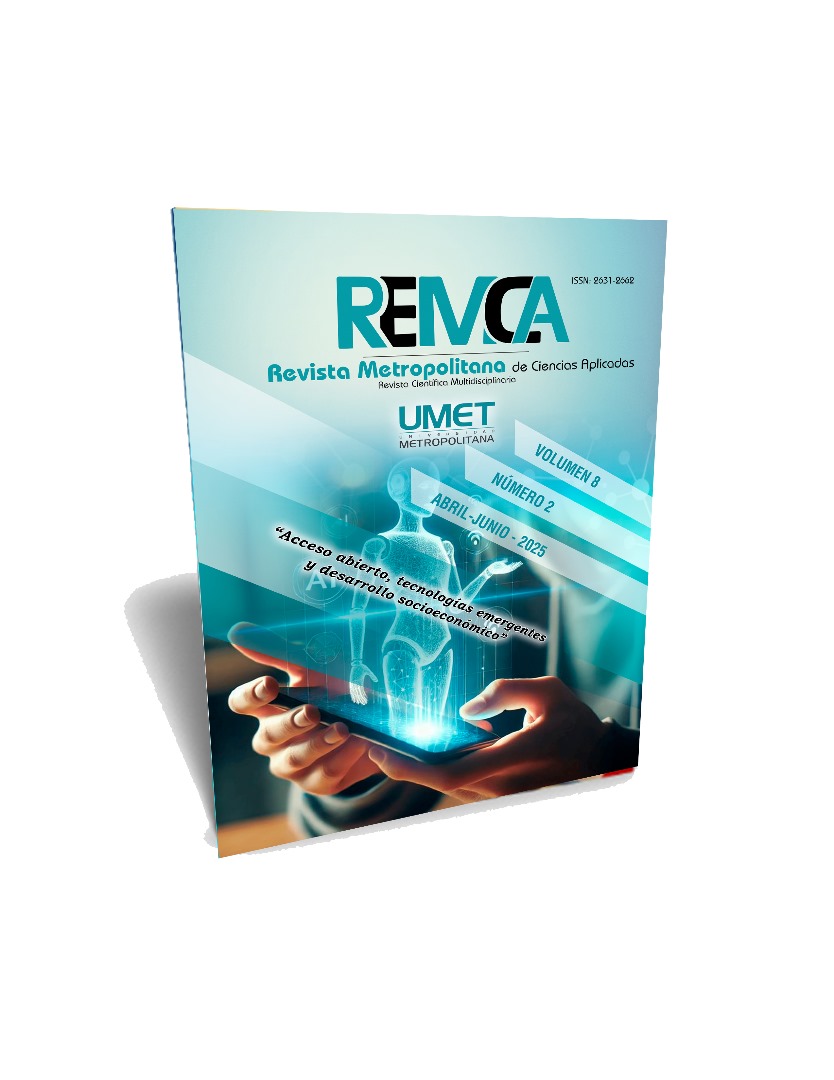The principle of equality in the hourly employment contract in the Ecuadorian State
DOI:
https://doi.org/10.62452/n61fxg49Keywords:
Contract, hourly work, equality, Ecuadorian legal systemAbstract
In Ecuador, the various contractual modalities in the Labour Code seek to balance the needs of employers and employees, thus generating debates on hourly work. The research addresses the principle of equality in hourly work contracts in Ecuador, highlighting its relevance in a labour context characterised by unemployment and informality. The objective is to determine the impact on the principle of procedural equality of the current legal conception of the application of the hourly employment contract in the Ecuadorian legal system. The methodology used adopts a qualitative approach, based on a bibliographical review of legal texts, academic articles and official documents, complemented by the analytical-synthetic method to break down and evaluate the normative provisions and the principle of equality. In addition, the exegetical method is applied to interpret legal and constitutional norms, identifying contradictions and gaps in their implementation. The findings allow us to propose strategies to strengthen labour oversight, guarantee social protection for hourly workers, and foster regulations that promote equity, highlighting the importance of legislative reforms to address structural inequalities in the Ecuadorian labour sphere.
Downloads
References
Altamirano, A. P. (2019). El principio de igualdad en el contrato de trabajo por horas en el estado ecuatoriano. (Tesis de licenciatura). Pontificia Universidad Católica del Ecuador. https://repositorio.puce.edu.ec/server/api/core/bitstreams/3e381686-7e2c-4478-8bf8-6d13ea542b8b/content
Aristóteles. (2015). Nicómaco De Aristóteles (Fontana, Vol. 1). Brontes. https://www.buscalibre.ec/libro-etica-a-nicomaco/9788415999881/p/47414042
Bayón, J., & Arenas, A. J. (2019). Relaciones laborales ¿Una realidad estructural, coyuntural o un perjuicio instaurado a nivel mundial? Revista Venezolana de Gerencia, 24(87), 737-768. https://produccioncientificaluz.org/index.php/rvg/article/view/24635
Ecuador. Asamblea Nacional Constituyente. (2008). Constitución de la República del Ecuador. Registro Oficial 449. https://www.turismo.gob.ec/wp-content/uploads/2021/09/Constitucion-de-la-Republica.pdf
Ecuador. Congreso Nacional. (2000). Ley de Transformación Económica del Ecuador. Registro Oficial 92. https://www.finanzas.gob.ec/wp-content/uploads/downloads/2012/08/trole.pdf
Ecuador. Congreso Nacional. (2005). Código del Trabajo. Registro Oficial Suplemento 167. https://www.ces.gob.ec/lotaip/2020/Junio/Literal_a2/C%C3%B3digo%20del%20Trabajo.pdf
El Comercio. (2024). Gobierno busca regular el trabajo por horas vía acuerdo ministerial. El Comercio. https://www.elcomercio.com/actualidad/negocios/gobierno-busca-regular-trabajo-horas-acuerdo-ministerial.html
Gaspar, M. E., Alvarado, H. B., & Díaz, I. J. (2020). La simulación del contrato individual de trabajo y consecuencias jurídicas en el Ecuador. Revista Universidad y Sociedad, 12(4), 383-389. http://scielo.sld.cu/scielo.php?script=sci_arttext&pid=S2218-36202020000400383
Mendieta, P. M. (2023). Análisis del contrato de trabajo por horas en el Ecuador. (Trabajo de titulación). Universidad Católica de Santiago de Guayaquil.
Morocho, M. F. (2023). La simulación de contratos individuales de trabajo en el Ecuador. (Tesis de licenciatura). Universidad Nacional de Chimborazo.
Organización Internacional del Trabajo. (1958). Convenio sobre la discriminación (empleo y ocupación). https://igualdad.cepal.org/es/digital-library/convenio-sobre-la-discriminacion-empleo-y-ocupacion-1958-num-111
Quispe Fernández, G. M., Ayaviri Nina, D., Villa Villa, M. V., & Velarde Flores, R. (2020). Comercio informal en ciudades intermedias del Ecuador: Efectos socioeconómicos y tributarios/ Informal trade in intermediate cities of Ecuador: Socioeconomic and tax effects. Revista De Ciencias Sociales, 26(3), 207-230. https://doi.org/10.31876/rcs.v26i3.33243
Villavicencio Logroño, L. K. (2020). Régimen laboral de las empresas públicas ecuatorianas. Revista de la Facultad de Jurisprudencia, 7, 366-404. https://vlex.ec/vid/regimen-laboral-empresas-publicas-866712642
Downloads
Published
Issue
Section
License
Copyright (c) 2025 Joel Jonas Fares-Peñafiel, Oscar Rubén Cuchiparte-Pastuña, Holger Geovanny García-Segarra (Autor/a)

This work is licensed under a Creative Commons Attribution-NonCommercial-ShareAlike 4.0 International License.
Authors who publish in Revista Metropolitana de Ciencias Aplicadas (REMCA), agree to the following terms:
1. Copyright
Authors retain unrestricted copyright to their work. Authors grant the journal the right of first publication. To this end, they assign the journal non-exclusive exploitation rights (reproduction, distribution, public communication, and transformation). Authors may enter into additional agreements for the non-exclusive distribution of the version of the work published in the journal, provided that acknowledgment of its initial publication in this journal is given.
© The authors.
2. License
The articles are published in the journal under the Creative Commons Attribution-NonCommercial-ShareAlike 4.0 International License (CC BY-NC-SA 4.0). The terms can be found at: https://creativecommons.org/licenses/by-nc-sa/4.0/deed.en
This license allows:
- Sharing: Copying and redistributing the material in any medium or format.
- Adapting: Remixing, transforming, and building upon the material.
Under the following terms:
- Attribution: You must give appropriate credit, provide a link to the license, and indicate if any changes were made. You may do this in any reasonable manner, but not in any way that suggests the licensor endorses or sponsors your use.
- NonCommercial: You may not use the material for commercial purposes.
- ShareAlike: If you remix, transform, or build upon the material, you must distribute your creation under the same license as the original work.
There are no additional restrictions. You may not apply legal terms or technological measures that legally restrict others from doing anything the license permits.




